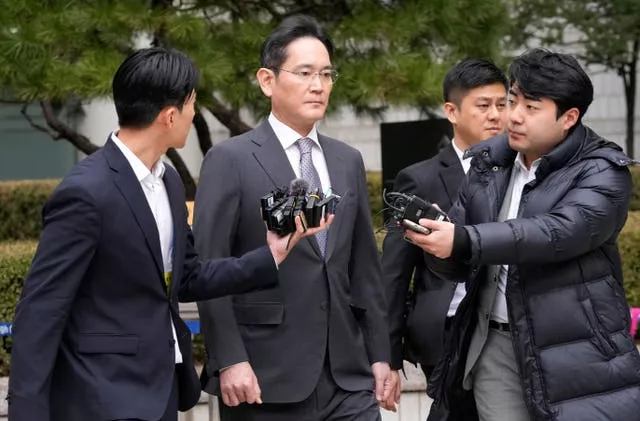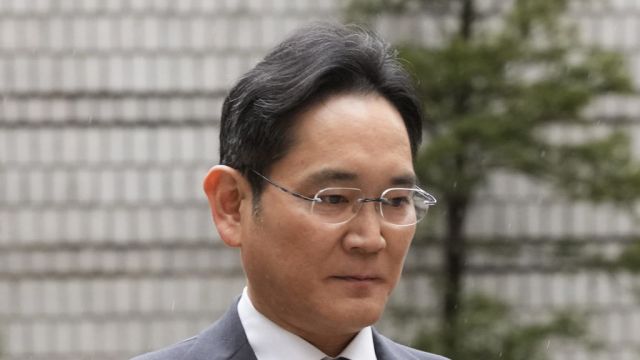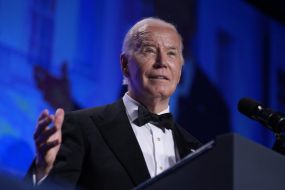A South Korean court on Monday acquitted Samsung Electronics chairperson Lee Jae-yong of financial crimes involving a contentious merger between Samsung affiliates in 2015 that tightened his grip over South Korea’s biggest company.
The ruling by the Seoul Central District Court could ease the legal troubles surrounding the Samsung heir less than two years after he was pardoned for a separate conviction of bribery in a corruption scandal that helped topple a previous South Korean government.
The court said the prosecution failed to sufficiently prove the merger between Samsung C&T and Cheil Industries was unlawfully conducted with an aim to strengthen Mr Lee’s control over Samsung Electronics.
Prosecutors had sought a five-year jail term for Mr Lee, who was accused of stock price manipulation and accounting fraud. It was not immediately clear whether they would appeal.

Mr Lee had denied wrongdoing in the current case, describing the 2015 merger as “normal business activity”.
Mr Lee, 55, did not answer questions from reporters as left the court. You Jin Kim, Mr Lee’s lawyer, praised the ruling, saying it confirmed that the merger was legal.
Mr Lee, a third-generation corporate heir who was officially appointed as the chairperson of Samsung Electronics in October 2022, has led the Samsung group of companies since 2014, when his late father, former chairperson Lee Kun-hee, suffered a heart attack.
Lee Jae-yong served 18 months in prison after being convicted in 2017 over separate bribery charges related to the 2015 deal.
He was originally sentenced for five years in prison for offering 8.6 billion won (€6 million) worth of bribes to then-president Park Geun-hye and her close confidante to win government support for the 2015 merger, which was key to strengthening his control over the Samsung business empire and solidifying the father-to-son leadership succession.
Park and her confidante were also convicted in the scandal and enraged South Koreans staged massive protests for months demanding an end to the shady ties between business and politics. The demonstrations eventually led to Park’s ousting from office.
Mr Lee was released on parole in 2021 and pardoned by South Korean president Yoon Suk Yeol in August 2022, in moves that extended a history of leniency toward major white-collar crime in South Korea and preferential treatment for convicted tycoons.
Some shareholders had opposed the 2015 merger, saying that it unfairly benefited the Lee family while hurting minority shareholders.
There was also public anger over how the national pension fund’s stake in Samsung C&T, the merged entity, fell by an estimated hundreds of millions of dollars, after Park had pressured the National Pension Service to support the deal.
Prosecutors have argued that Mr Lee and other Samsung officials caused damage to shareholders of Samsung C&T, which was a major construction company, by manipulating corporate assets to engineer a merger that was favorable to Cheil, an amusement park and clothing company where Mr Lee had been the biggest shareholder.

Prosecutors also claimed that Samsung executives, through accounting fraud, inflated the value of Samsung Biologics, a Cheil subsidiary, by more than 4 trillion won (€2.8 billion) in an effort to make the deal look fair.
In Monday’s ruling, the court said the prosecution’s evidence was not enough to establish that the 2015 merger was conducted through illegal steps or served the sole purpose of strengthening Mr Lee’s control over Samsung Electronics, saying broader business considerations were likely involved.
The court said it was unclear that the deal’s conditions unfairly hurt the interests of shareholders and added that prosecutors failed to prove that Samsung officials committed accounting fraud.
The ruling was criticised by activists, progressive politicians and commentators, who questioned how Mr Lee could be innocent of all charges when he had previously been convicted in the separate case of bribing a former president while seeking government support for the merger.
People’s Solidarity for Participatory Democracy, a major civic group based in Seoul, described the ruling as a setback for years of efforts to reform the management culture of South Korea’s family-owned conglomerates and their ties with the government.
Oh Se Hyung, an official at the Citizens’ Coalition for Economic Justice, said the ruling represented a “collapse in economic and judicial justice”.
“It’s tragic that a wrongful merger and clear accounting irregularities were ruled as not guilty, and you have to question the roles played by the prosecution and the judiciary that led to this,” he said.
However, South Korean business lobbies, including the Korea Chamber of Commerce and Industry, praised Mr Lee’s acquittal, saying that an extension of Mr Lee’s legal troubles would have hampered Samsung’s speed and decisiveness as it faces heightened competition in semiconductors and other markets.
South Korean corporate leaders often receive relatively lenient punishments for corruption, business irregularities and other crimes, with judges often citing concerns over the country’s economy.
Mr Lee has been navigating one of his toughest stretches as the leader of one of the world’s largest makers of computer chips and smartphones, with Russia’s war on Ukraine and other geopolitical turmoil hurting the world economy and deflating technology spending.
The company last week reported an annual 34 per cent decline in operating profit for the final quarter of last year as sluggish demands for its TVs and other consumer electronics products offset hard-won gains from a slowly revering memory chip market.







